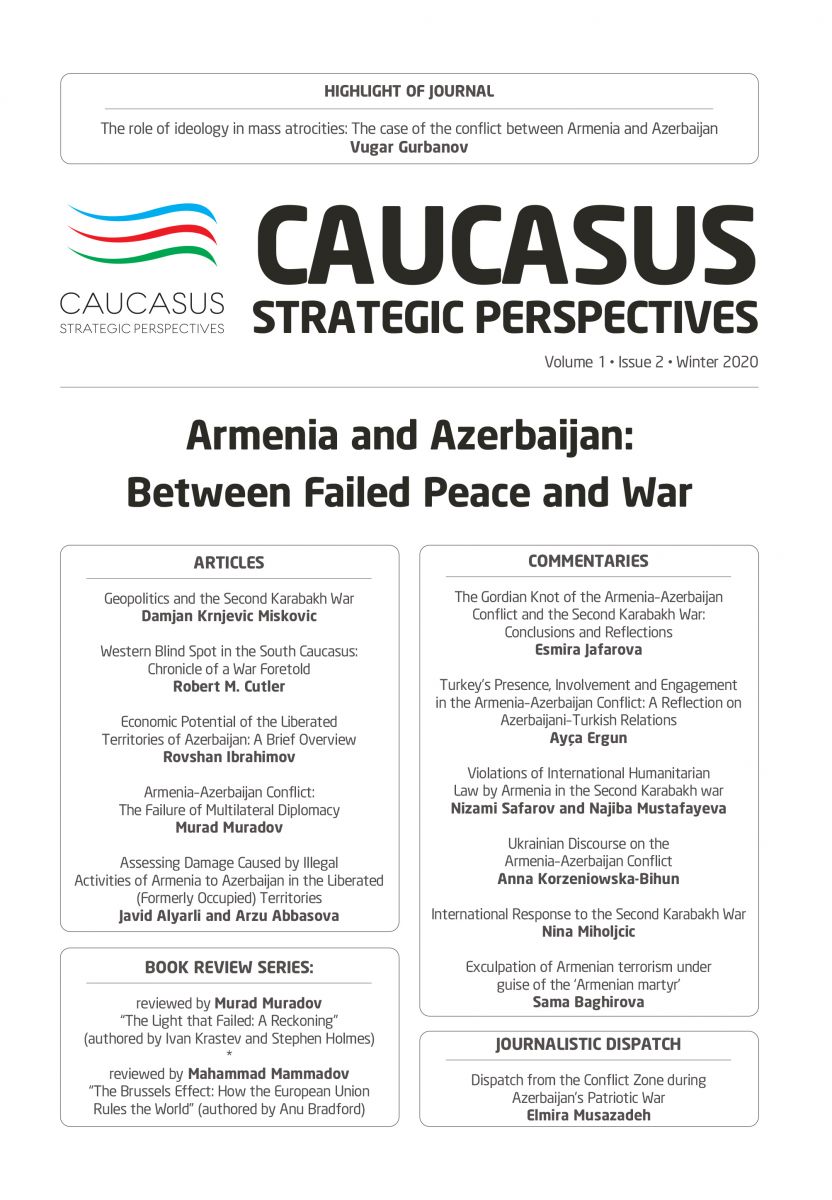Armenia–Azerbaijan Conflict: The Failure of Multilateral Diplomacy
This article describes the failure of the long-term attempts to resolve the Armenia–Azerbaijan conflict in and around the Nagorno-Karabakh region of Azerbaijan through the means of multilateral diplomacy. It shows that the OSCE Minsk Group has been unable to fulfil its mission and analyses the structural problems their attempts have had. Then, the article proceeds to question the validity of the liberal concept of global politics and its ability to resolve conflicts, arguing that, in the case of the Armenia–Azerbaijan conflict, multilateral diplomatic efforts could actually have made matters worse instead of improving them. It reveals that attempts to stimulate the conflict parties to achieve a consensus were futile owing to the fundamentally skewed status quo and, in reality, only motivated Armenia to continue doing nothing and trying to normalize the fact of territorial occupation. The article also points up the failure to apply similar legal standards to the Nagorno-Karabakh and other separatist conflicts in the post-Soviet space and Eastern Europe. Finally, it evokes the realist concept of diplomacy and reviews its fundamental pillars, arguing for a case that their application in the foreign policy of the conflicting states might have helped them to achieve much better conflict-resolution dynamics.
Latest news
- 12/27/2024 Call for Submissions-Caucasus Strategic Perspectives, Volume 6, Issue 1, Summer 2025 667 views
Popular articles
- 07/18/2022 The Russia–Ukraine War: Perspective of Azerbaijan 4322 views
- 10/14/2020 The Non-Aligned Movement: In Pursuit of Validity and Relevance in the Contemporary Global Order 3307 views
- 10/14/2020 Vicious Circle of the South Caucasus: Intra-Regional Conflicts and Geopolitical Heterogeneity 3290 views
- 10/14/2020 Relevance of Non-Alignment for Azerbaijan’s Foreign and Security Policy 3019 views





